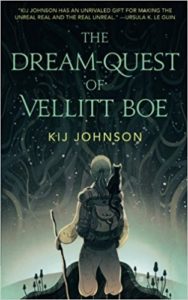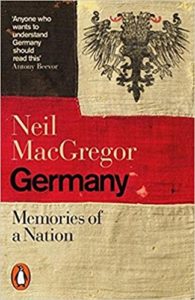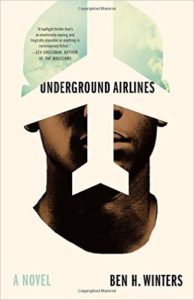The height of my to-be-read pile could be measured in years, if the books could somehow fit into a unified pile. And that doesn’t count a particular moving box in the basement, in which some really good books, or at least some really interesting-looking books are awaiting their turn to come upstairs. (Some of them do make it!) Nor does it count the acquisitions on my phone, some recently made, even though I am nowhere near finished with the great set of books I picked up for silly cheap from a Humble Bundle a couple of years back. (Some of those get read, too! I’ve even written here at Frumious about nearly a dozen books from that bunch.) Nor does it count the unread books on my Kindle. Now, I am not the Frumious contributor who discovered that there is in fact a limit to the number of books that fit on a kindle (she actually reads them all), but the miraculous technology of the 21st century has left me with lovely books there, too, just waiting to be read and savored.
What was I thinking when I bought them? Generally, it was more than “How do I round out the order of other stuff so that I get free shipping from Amazon?” although that has happened sometimes. I have a to-buy list that I can dip into when that happens. And I suppose the existence of that list reassures me, because without it the t-b-r piles (notional as they are) would be higher by another good year or two.
I wasn’t thinking any one thing; I’m not buying by color, or to get familiar with a subject area, or to collect an author’s complete works, although I have done two of those three in the past. So here is a glance of the shelves of unread books on paper, along with what I think possessed me to pick each one up at the time.
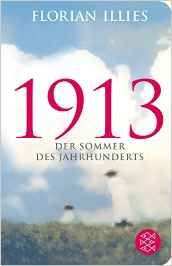
1913: Der Sommer des Jahrhunderts (1913: The Summer of the Century) by Florian Illies. Published in 2012 in advance and anticipation of all of the centenary observations of the start of the Great War. Illies got famous for a book titled Generation Golf (named for the VW car, not the game with the dimpled ball), which was funny, and this looked like something more serious but still accessible. Besides, it was 2013, and I thought I might like thinking about the last of Belle Epoque Europe. I still might.
Memoirs of the Polish Baroque: The Writings of Jan Chryzostom Pasek, a Squire of the Commonwealth of Poland and Lithuania Edited, translated, with an introduction and notes by Catherine S. Leach. Isn’t that title a splendid example of what it illustrates? To be perfectly, or at least more, accurate, I read patches of this back when I was in a graduate seminar about the history of the Polish-Lithuanian Commonwealth. Back then (during grad school, not during the time of the Commonwealth of Two Nations), copies were more difficult to come by, and I read from photocopied pages I made at the Library of Congress. I mentioned Pasek a couple of times when I was writing about Milosz’s History of Polish Literature. The memoirs are a hoot, not quite like anything else ever. My used copy has enthusiastic marginalia in the first three years of the memoirs. Someday I hope to read further myself. [I did! Finished it all and enjoyed it; the marginalia indicated that the previous owner of my copy only got about a third of the way through. Reviewed in September 2023.]
Embassytown by China Miéville. I enjoy reading Miéville’s work; the only early one of his I put down is Un Lun Dun, and the only one I haven’t picked up is King Rat. I think that I liked The City & The City best, but I have liked all of them to varying degrees. I haven’t read Embassytown or anything more recent, which puts me about five years behind on his career. I’m a Hugo voter this year, though, so I expect I will read This Census-Taker by the end of July.
The Incorruptibles by John Hornor Jacobs. Roman legions on the Texas frontier, with gunslingers and monsters. What’s not to like? This looked like a fun mix, and indeed it was in the first 30 pages that I read before distraction got the better of me. Sometimes I just start in again wherever I left off; sometimes I go back to the beginning. [Update: I went back to the beginning, read it all, and liked it!]
Foreign Devils by John Hornor Jacobs. One of the things about buying actual paper books at an actual bricks and mortar store in a non-English-speaking country is that if you don’t grab a book the first time you see it, there isn’t a second chance. Of course there’s the whole internet to get around that problem, but somehow that’s not as much fun. This is a sequel to The Incorruptibles that I picked up on the principle that I might not see it again. [Update: Good, but very much a middle book. I also acquired and read the third book in the trilogy.]
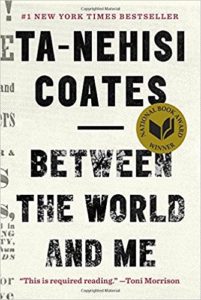
The Doomed City by Arkady and Boris Strugatsky. Roadside Picnic was very weird and very Russian. More, please. I read it not long before we really got going here at Frumious, but when I get around to The Doomed City I will write about it so I can remember more of what I thought of the weirdness. I don’t think I saw it in the store here, so thank you internet.
Between the World and Me by Ta-Nehisi Coates. Back when Coates was engaged with his blog at The Atlantic, I was a semi-regular commenter. I enjoyed the back-and-forth, mainly regretting that the difference in time zones meant that I missed out on a lot of live discussion. I think he’s extremely sharp, and am pleased to have witnessed at close hand part of the development of a major public intellectual. How could I not get his new book? (I like the writing he has done on Black Panther, too, though I am getting the compilations rather than the monthly book.) [Update: This is a great book.]
The Issa Valley and Native Realm by Czeslaw Milosz. His To Begin Where I Am is a book of essays I would go back to again and again, if I were the kind of person who went back to books of essays more often than I do. Which is to say I thought they were terrific, even profound in parts. These two books are novels set in the areas where Milosz grew up, when they were part of inter-war Poland. Several of the best essays in Milosz’ collection were also set in the area. I bicycled across the countryside not too far away, now that they are part of post-Soviet Lithuania. I look forward to seeing how all three — essays, novels, bike tour — line up. Someday. [Update: It turns out that Native Realm is a memoir, and a very good one at that.][Update update: I read The Issa Valley, which is also very good, and reviewed it in April 2024.]



